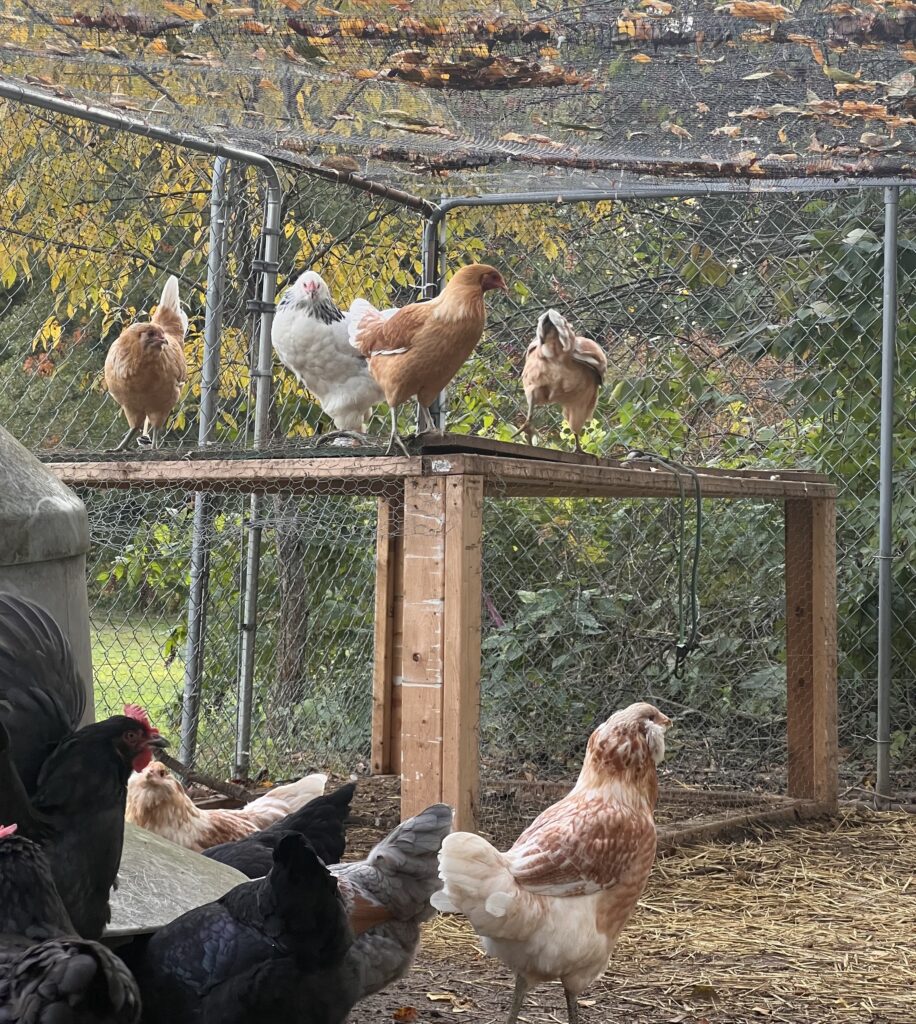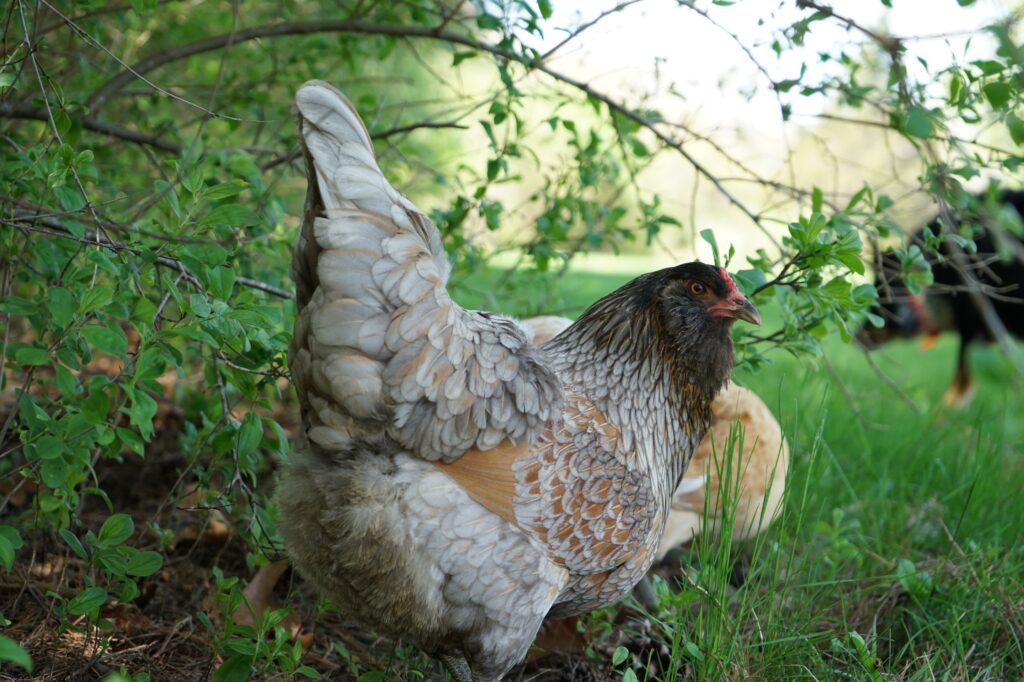LANSING, Mich. (Michigan News Source) – You know that “eggflation” has gotten out of hand when people start looking at backyard chickens as a better investment than a savings account. Thanks to bird flu wiping out millions of hens, the price of eggs has skyrocketed with the average price for a dozen Grade A large eggs in Michigan sitting at approximately $4.82.
Grocery stores like Costco, Kroger, and Whole Foods have also been slapping limits on egg purchases, meaning that your Sunday brunch plans now come with a ration card. This has all led people to rethink their morning omelets and some frustrated shoppers are saying, “Fine, I’ll just get my own chickens.”
Flocking to food security.
MORE NEWS: Livonia Wants to Spend $217M on a New Government Complex
Michigan State Rep. Jim DeSana (R-Carleton) sees what’s happening and has hatched a plan. He has reintroduced legislation that would make it easier for people to raise backyard chickens. House Bills 4049 and HB 4050 have been referred to the House Agriculture Committee.
His proposal allows homeowners with at least a quarter-acre lot to keep up to 25 chickens (no roosters). DeSana argues that a modest flock could produce two dozen eggs a week, easing grocery bills and giving families some food security.
DeSana says in his press release, “A young hen lays an egg about two out of every three days. With just five hens, that’s approximately two dozen eggs a week. Think about how much that could help families lower their grocery bills right now. The current egg shortage would be less severe had this bill been passed two years ago.”
Scrambling for eggs.
Michigan has lost over 6.5 million egg-laying hens to bird flu, many of them in the last quarter of 2024. When a single farm gets infected, the whole flock has to go. Meanwhile, backyard chickens? They’re safe from large-scale outbreaks, and their owners aren’t at the mercy of the supermarket supply chain.
Even Detroit is letting their residents have chickens. In November of last year, the Detroit City Council voted that residents can keep eight chickens and/or ducks. Winona Bynum, Executive director of Detroit’s Food Policy Council, told Bridge Detroit that the new rule was a welcome step in a community where about 65% of Detroiters are experiencing food insecurity. Bynum said, “This provides another avenue for Detroiters to feed their families and their neighbors.”
Michigan is the seventh-largest egg producer in the nation, churning out over 5 billion eggs annually. According to a 2024 report from the Michigan Allied Poultry Industries, just eight owners manage 15 million birds across 17 farms in the state.
Chickens in the back yard.
MORE NEWS: Troy School District Projected to Lose Students Down the Road
However, instead of buying eggs from community grocery stores and local neighborhood farms, many Michiganders are opting to raise their own chickens. Backyard chickens have become a growing trend, not just as a hobby but as a means of ensuring a steady supply of fresh eggs.


One Michigan resident, Madison Gruber, the 20-year-old daughter of conservative talk show host and commentator Steve Gruber of the Steve Gruber Show, has been raising chickens for years. She explained that their coop currently houses 24 hens and two roosters. Roosters are only required if you want to have fertilized eggs that can hatch into chicks. Otherwise, hens will happily lay unfertilized eggs on a regular basis.
Eggs aplenty: a backyard bounty.
Madison’s hens produce anywhere from 18 to 24 eggs a day depending on the season. It doesn’t sound like they’re going to waste either. Steve said that his family eats eggs every day, sometimes twice a day. With eggs being a staple in their diet, this backyard setup ensures a consistent, protein- rich food source year-round whether they are scrambled, fried, poached or over-easy.
Egg production fluctuates with daylight, with the cold winter months slowing down output significantly. Steve said that in late December and early January where there’s not much light, they might only get three or four eggs a day.
Raising chickens requires more than just feeding them and collecting eggs. Maintenance includes providing fresh water, occasional deworming, and managing health issues such as egg prolapse, which can occur when an egg is stuck outside the hen’s body.
Feathered friends: Madison’s chickens are more than just egg layers.
For Madison, chickens are more than just egg producers – they are pets with personality. She enjoys naming her flock, sometimes following themes like the “Breakfast Club,” with names such as Pancake, Syrup, and Blueberry. She said about her chickens, “I don’t even really care about the eggs. I just think they’re funny little creatures.” She added that chickens are the closest living relatives to dinosaurs, which she finds fascinating.


While some chicken owners raise their birds for meat, Madison’s family strictly keeps theirs for eggs and companionship. With a steady rise in people turning to backyard chickens for self-sufficiency, this feathered trend shows no signs of slowing down.
To help chicken wranglers, there is a plethora of backyard chicken Facebook groups and also websites like “The Chicken Chick” to help folks navigate chicken ownership. There are even places in Michigan, and around the country where you can rent a chicken or two through places like the “Rent the Chicken” website. Renting chickens lets people test the waters to see if they’re cut out for life as a chicken master.
Whether it’s to beat inflation, ensure food security, or just enjoy some quirky feathered pets, more and more Michiganders are proving that when it comes to eggs, they’d rather shell out for chickens than be at the mercy of supermarket sticker shock.
